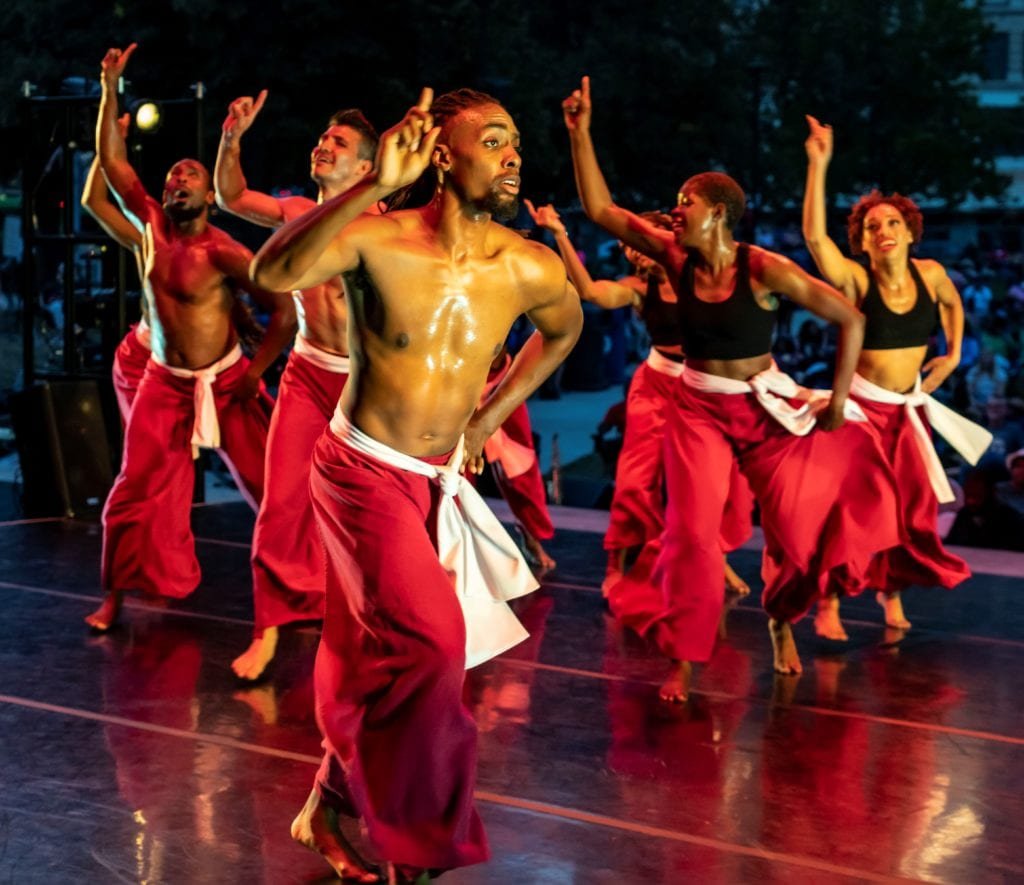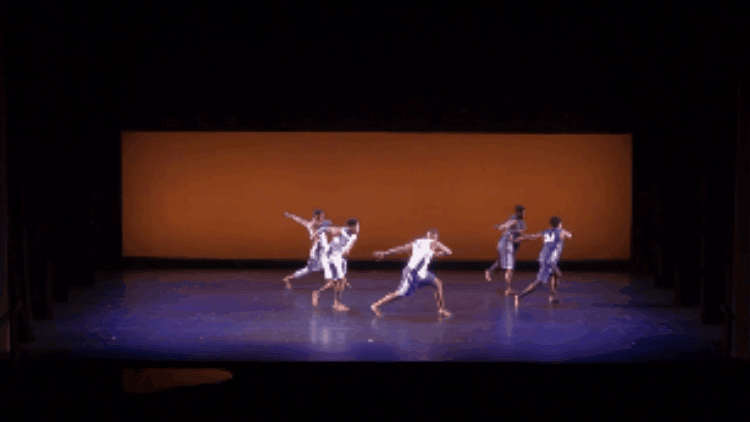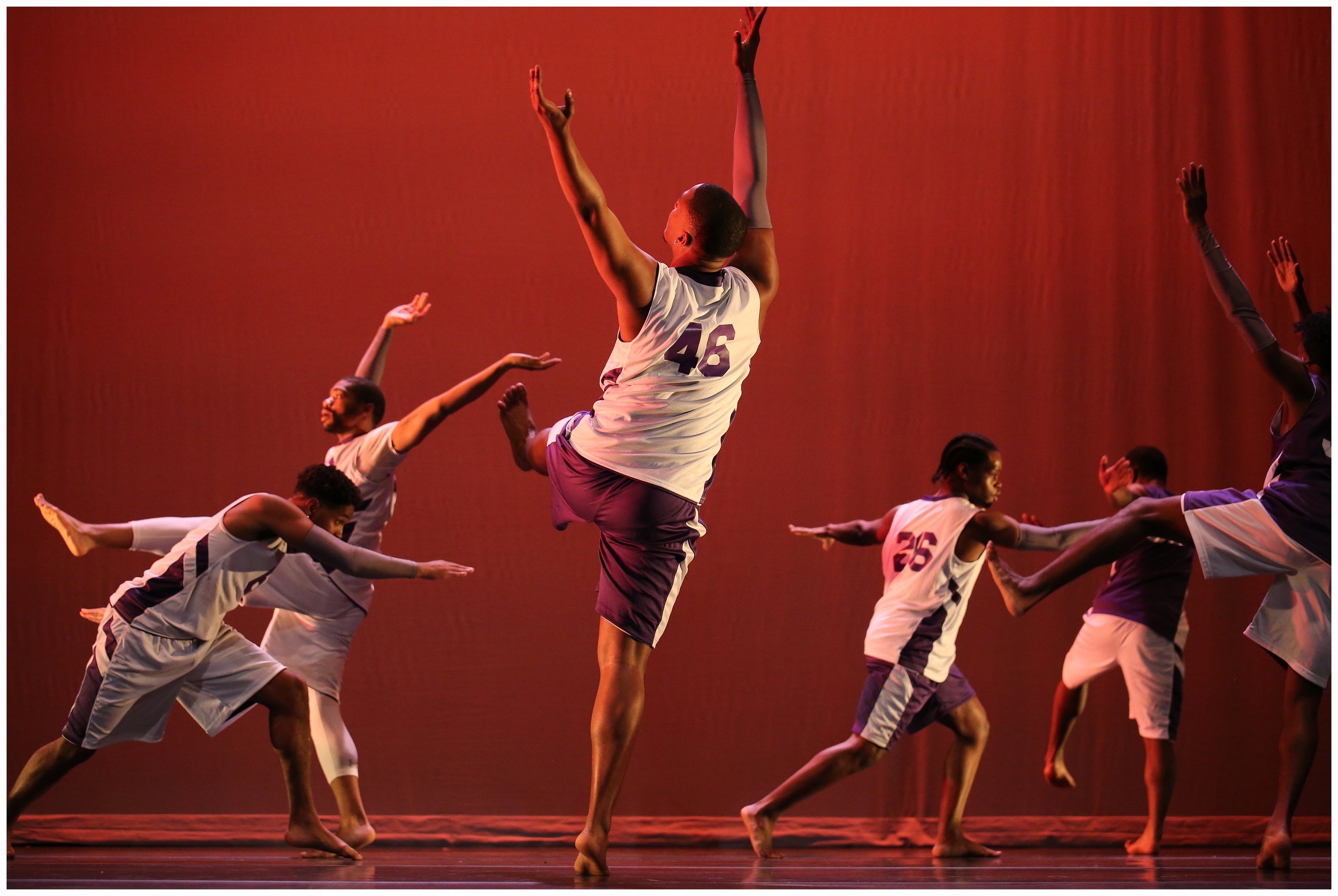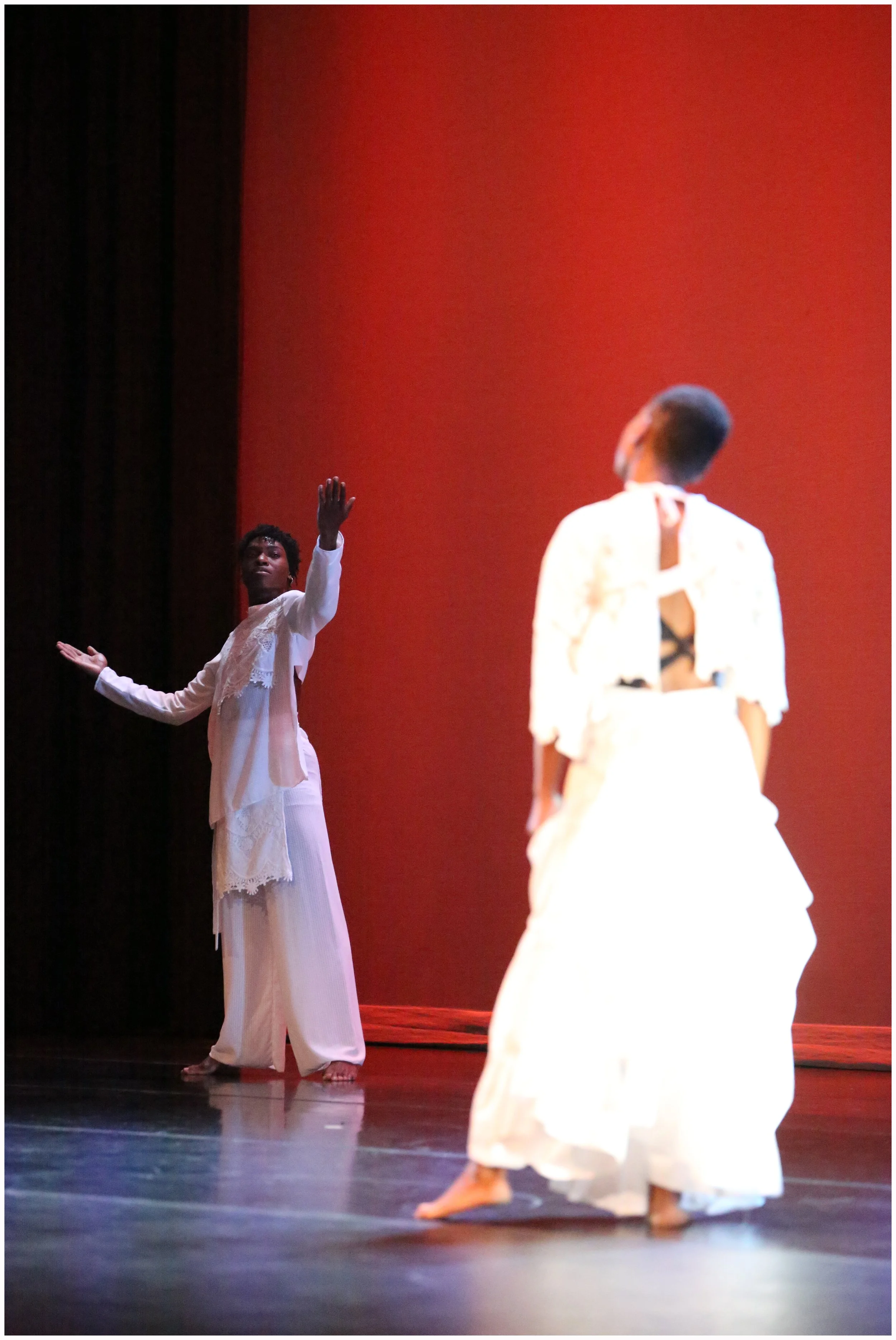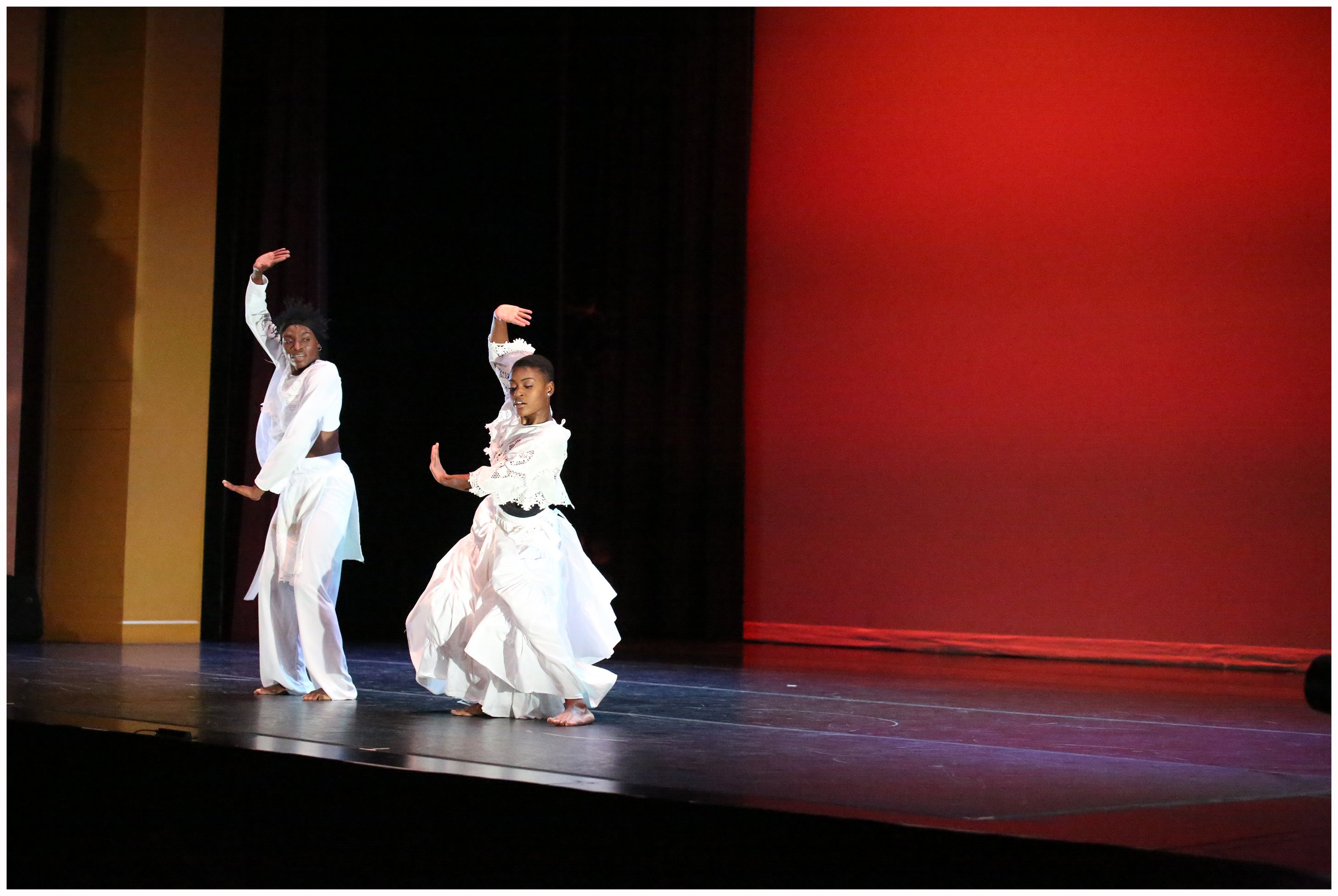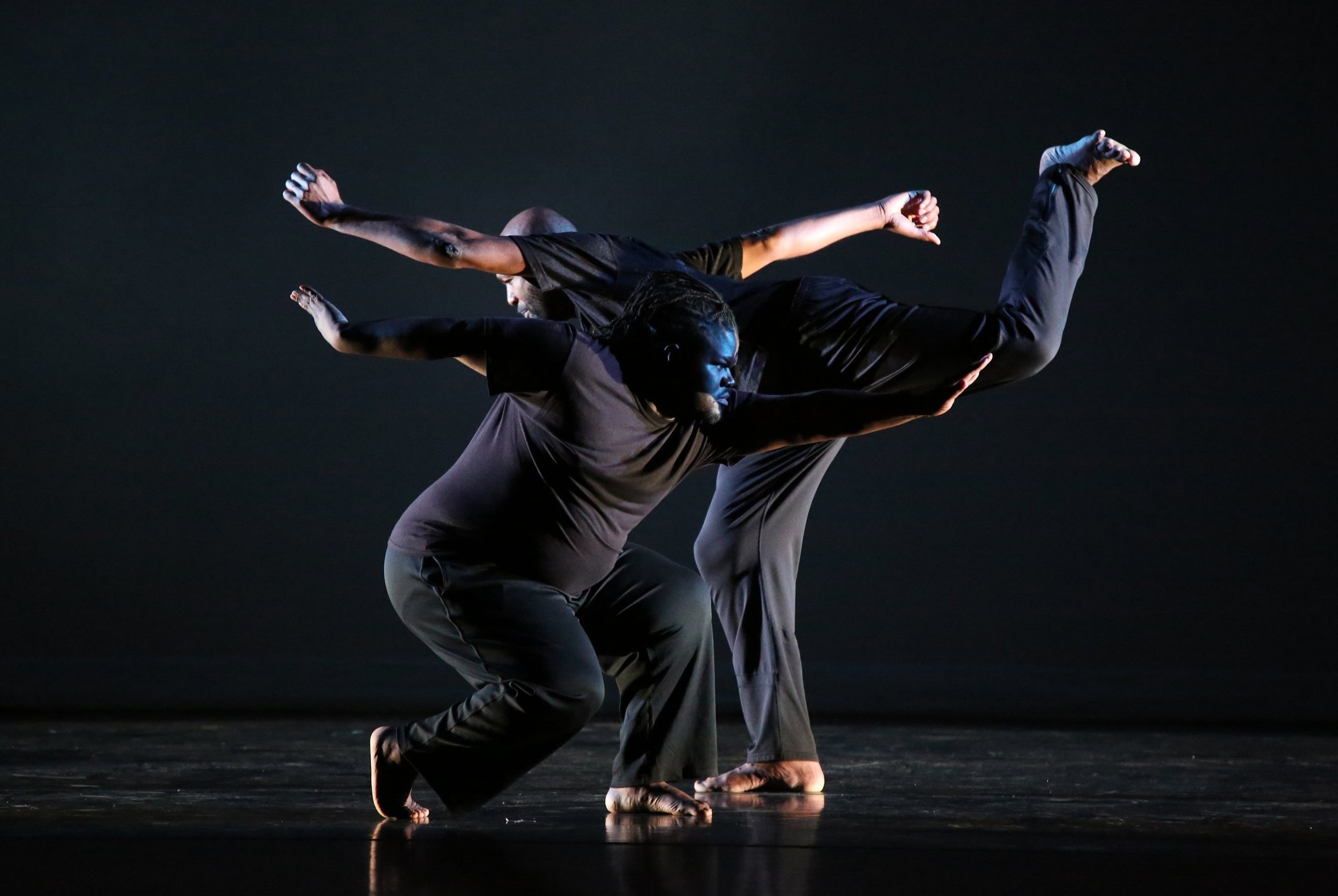
My choreographic work is concerned with African traditions and their uses for contemporary aesthetics, contemporary times, and the current functional needs of marginalized people—both in physical activity and in philosophical thought.
I create embodied epistemologies for contemporary African and African American culture, while holding space for the works and identities of various Black, LGBTQIA+, and other disempowered, yet powerful communities.

Selected Works
LABOR
LABOR (2021) asks us to think about the work of women, both in the workforce and in their daily lives. This labor is further complicated by introducing pregnancy, childbirth, and child-rearing as other forms of labor. Informed by my lived experience with my mother and grandmother, and conversations with the all-women cast, LABOR engages this discourse. In doing so, the work advocates for women's labor concerns.

Wawa Aba
Wawa Aba (2012) is about grit and perseverance despite challenge—the epitome of the African American experience historically. I used a traditional Zimbabwean dance, Mhandé, for contemporary functioning. It is also a “feel good” piece in the way audiences receive it. Wawa Aba is my most widely seen work; Dayton Contemporary Dance Company (DCDC) presented it in multiple national and international tours including concerts at HBCUs, Kennedy Center, and as far as Kazakhstan. DCDC also presented the work in residencies and arts-in-education programming to demonstrate Africanist movement, proving it an example of how wide reaching Africanist dance is.

hOw to bUILD a hOuse
hOw to bUILD a hOuse (2017) is embodied research about the importance of community building for queer bodies and Black male queer bodies. The work highlights these important yet underground made families that Black queer folk have created since the inception of hip hop, disco, and voguing. Funded by a Greater Columbus Arts Council choreographer’s grant, the work explores both my personal and my concerned awareness of supportive, familial Black queer spaces. It’s part contemporary, part serious, part dance, and part camp.

Good Game, Yo!
Good Game, Yo! (2015) looks at stereo-traditional maleness as experienced in sports, an American favorite pastime. It examines Black male intimacy and gender roles through its embodied and movement articulation, queering specific performative moments in the dance. This work was presented during the American Dance Guild Festival 2018, honoring Eleo Pomare, at the Ailey Citigroup Theater in New York City.

Best Part
Best Part (2018) exhibits an intimate relationship. We don't know if it's about passion or sibling love, but the couple’s closeness is evident. My work often is not about intimacy in relationships, so in a sense this dance represents a momentary departure.

Double-Dutch & Broken Levees
Double-Dutch & Broken Levees (2017) wants to concern us with our relationship with the environment: the sky, the wind, the ground, the water, the vegetation, the people—our planet. It juxtaposes urban childhood play with natural disasters resulting from climate change. More than other works, Double-Dutch & Broken Levees points to a kinship with our respective environments—the internal ecosystem of the body and the larger environment outside the body. This work was commissioned by the Dayton Contemporary Dance Company in a concert of dances featuring the music of Wynton Marsalis called “Wynton Works.”











